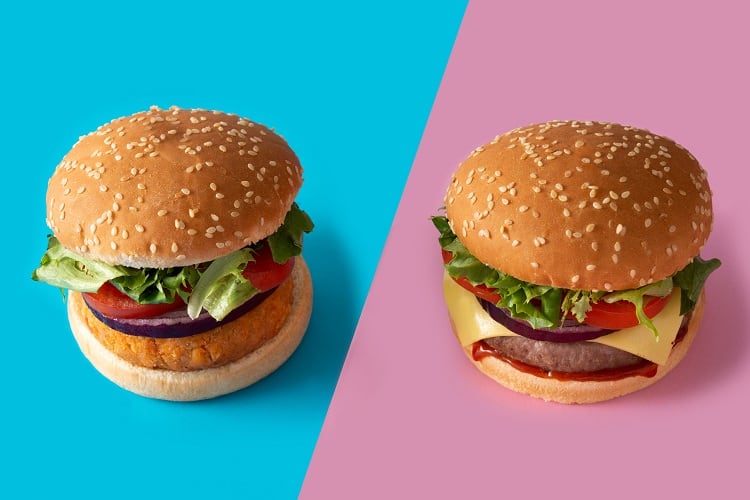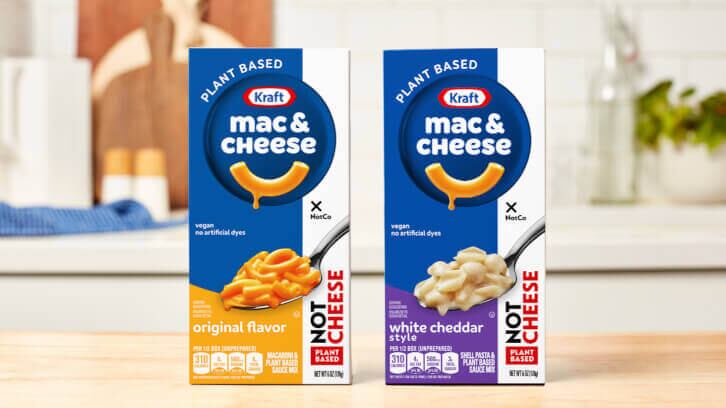A new US study finds dietary substitutions can help lower carbon emissions and positively affect health, encouraging further global action to produce, research and invest in environmental and health-conscious product developments.
Exploring consumer diets, the study delved into the potential outcomes of these dietary swaps by analysing overall dietary quality and carbon footprints. Using emissions data derived from the Food Recall Impacts on the Environment for Nutrition and Dietary Studies Database, the researchers gathered insights into greenhouse (GHG) emissions tied to the production of specific food items. Researchers also drew upon the Healthy Eating Index (HEI) 2015 scores to assess dietary quality.
Small incremental changes provide big outcomes
With this data, the researchers sought to identify simple, actionable dietary substitutions from higher- to lower-carbon foods. Identifying the value of convenient and easier-to-adopt dietary shifts is important to ensure complicated or challenging swaps are not a barrier to consumers implementing dietary changes.
Instead of suggesting a complete dietary overhaul, the researchers highlighted how making dietary changes through small substitutions can create positive change and help reach environmental targets. Climate targets and personal health objectives can benefit from this ‘small change’ approach, with researchers describing it as a “valuable starting point for addressing diet’s impact on climate and health”.
Diet and its impact on the environment are intrinsically linked. Mixed dishes like burritos, pasta, and others where beef was replaced with lower-impact protein resulted in the greatest emissions decrease. The researchers found that swapping beef or pork with poultry, substituting mixed dishes with poultry or vegetarian dishes and choosing plant-based milk over animal-based products can be advantageous for the environment and health.
European food swaps: Away from animal-based, towards alternatives
“Animal agriculture is a significant contributor to climate change,” Helen Breewood, Research and Resource Manager at the Good Food Institute Europe (GFI Europe), told FoodNavigator.
While estimates vary, one 2021 study finds that the animal agriculture sector, including animal feed production, was responsible for around 20% of global human-made GHG emissions in 2010. A study led by Oxford University found that lowering the global food systems’ emissions is essential if the world is to meet the 1.5 or 2°C climate targets of the Paris Agreement.
The impacts of food and agriculture include GHG emissions, land use, freshwater withdrawals, eutrophication and mammal and bird diversification. “As a general rule, animal products have notably higher climate impacts, land use and other environmental impacts than plant-based foods,” confirmed Breewood. By 2050, worldwide consumer demand for meat is anticipated to almost double, signalling the urgency for more sustainable ways to feed an increasing population.
Alternative proteins, including plant-based foods, cultivated meat and foods made by fermentation are increasingly explored by companies looking to lower carbon emissions and still provide in-demand meat, seafood, eggs and dairy.
“Plant-based meat—an option that is already widely available—enables people to make easy switches and still enjoy the taste and texture of meat,” Breewood shared. Currently, the most advanced categories are plant-based milk and ground meat products like burgers and nuggets. Still, Breewood continued, “with the right investment, it will be possible to deliver sustainable versions of pretty much everything”.
Cultivated meat is made in fermenters, like those used for brewing beer, instead of by farming animals, enabling meat eaters to enjoy their favourite foods more sustainably in various European markets.
Alternative protein companies use novel fermentation approaches to produce foods that deliver the distinctive flavours and textures of animal products free from animal farming practices. Taste and price, however, must compete with animal-based products to appeal to consumers, which requires sufficient research and infrastructure to make these varieties affordable.
Dietary swaps can benefit the environment. Research has shown that plant-based meat tends to have a lower carbon footprint than animal-sourced meat, with some options having climate emissions six-seven times lower than conventional beef.
Quorn’s mycoprotein, made through fermentation, has a carbon footprint 70% lower than chicken, for example, the brand stated. Whey protein made using a technique known as precision fermentation can cause up to 97% less GHG emissions than whey protein from cows.
Manufacturer and consumer response
The food industry’s response can enable the widespread development of plant-based products, making dietary substitutions easier and more appealing.
“New research has shone a light on the huge opportunities for the food industry,” shared Breewood. The opportunities focus on shaping the sector’s transition to more sustainable diets and benefiting from the growing appetite for plant-based foods. It achieves this, Breewood confirmed, “by investing in the research and infrastructure needed to bring down prices, improve taste and nutritional quality, and make these foods available to all”.
A recent study carried out by ProVeg International as part of the Smart Protein Project found that price and taste remain the biggest barriers to wider adoption of plant-based foods. When the 7,500 people interviewed were asked what prevented them from buying plant-based foods, 38% said they were too expensive, and 30% said they were not tasty enough.
“With health another important motivator for consumers to switch to plant-based diets, our own new report has provided insights into how businesses are working to further enhance the benefits of these products, another opportunity for food manufacturers to invest in innovation,” added Breewood.




